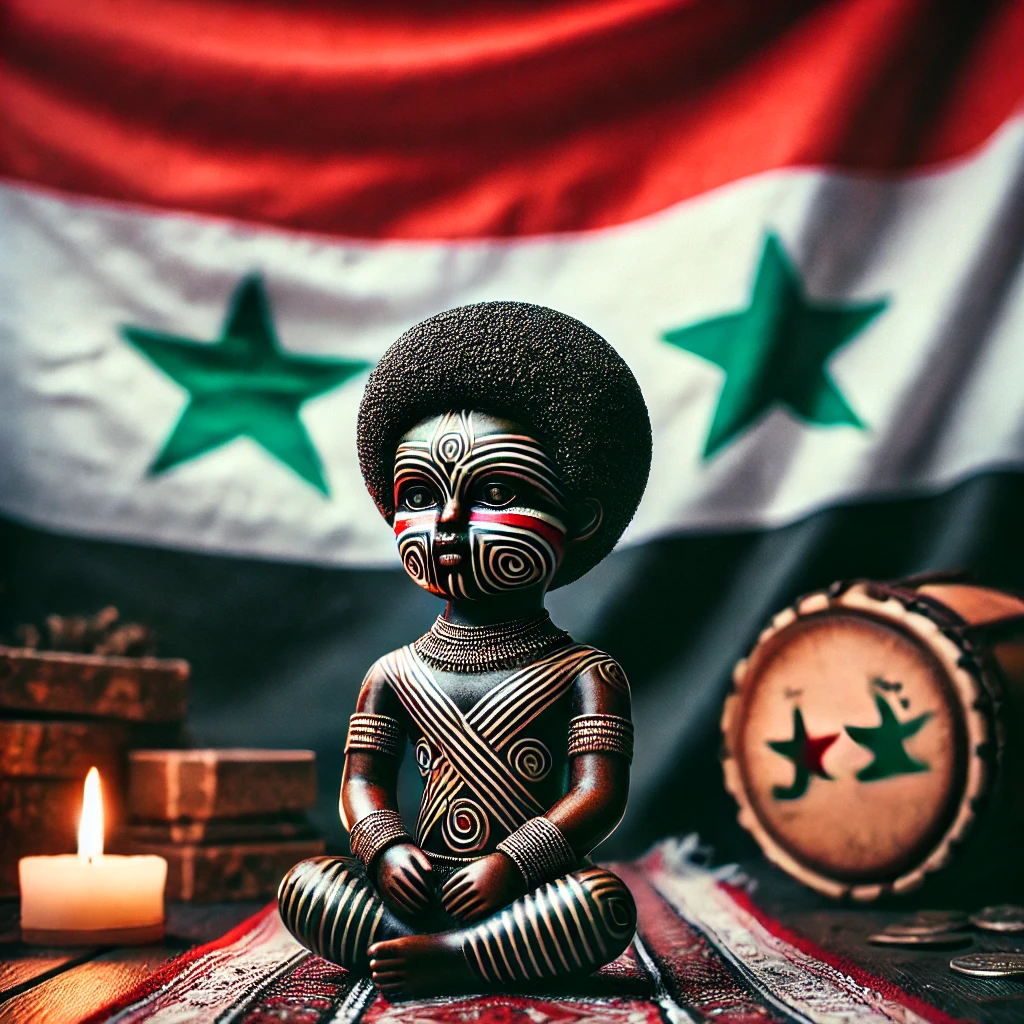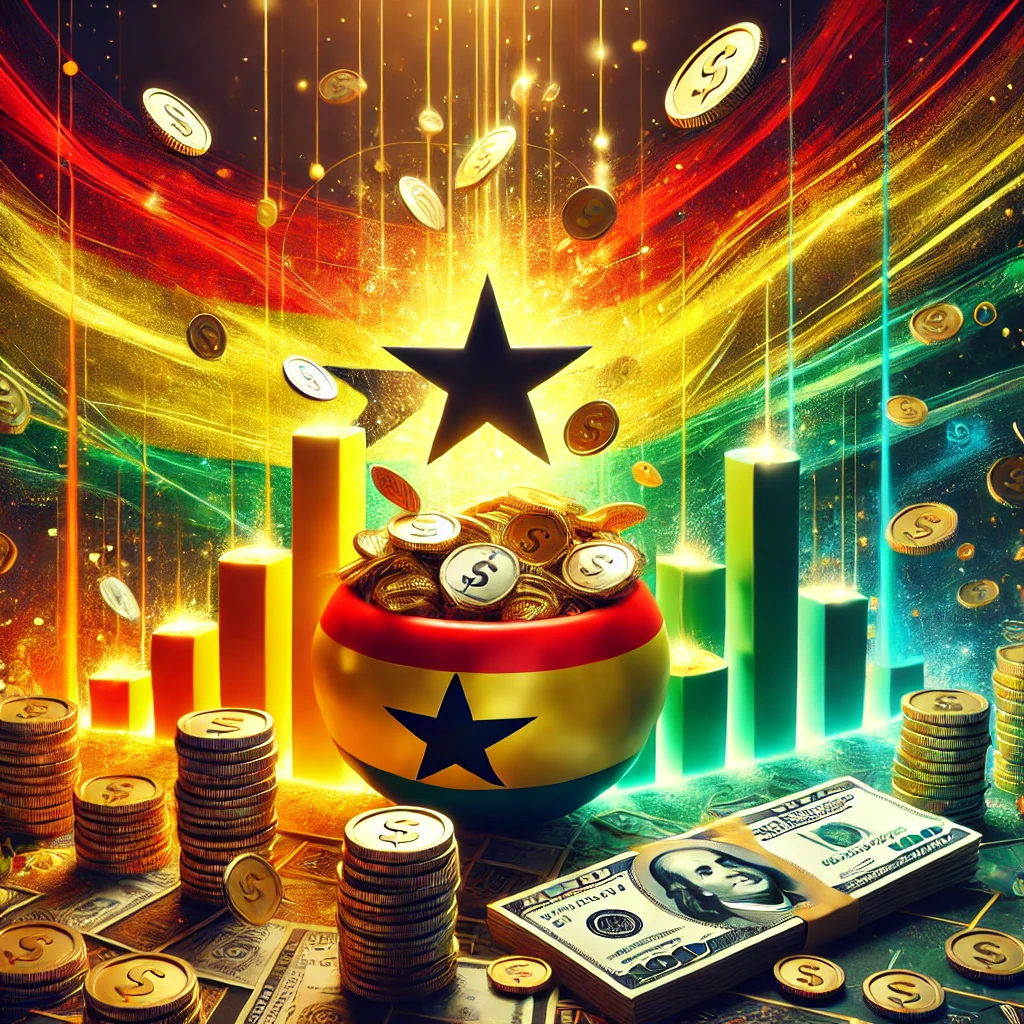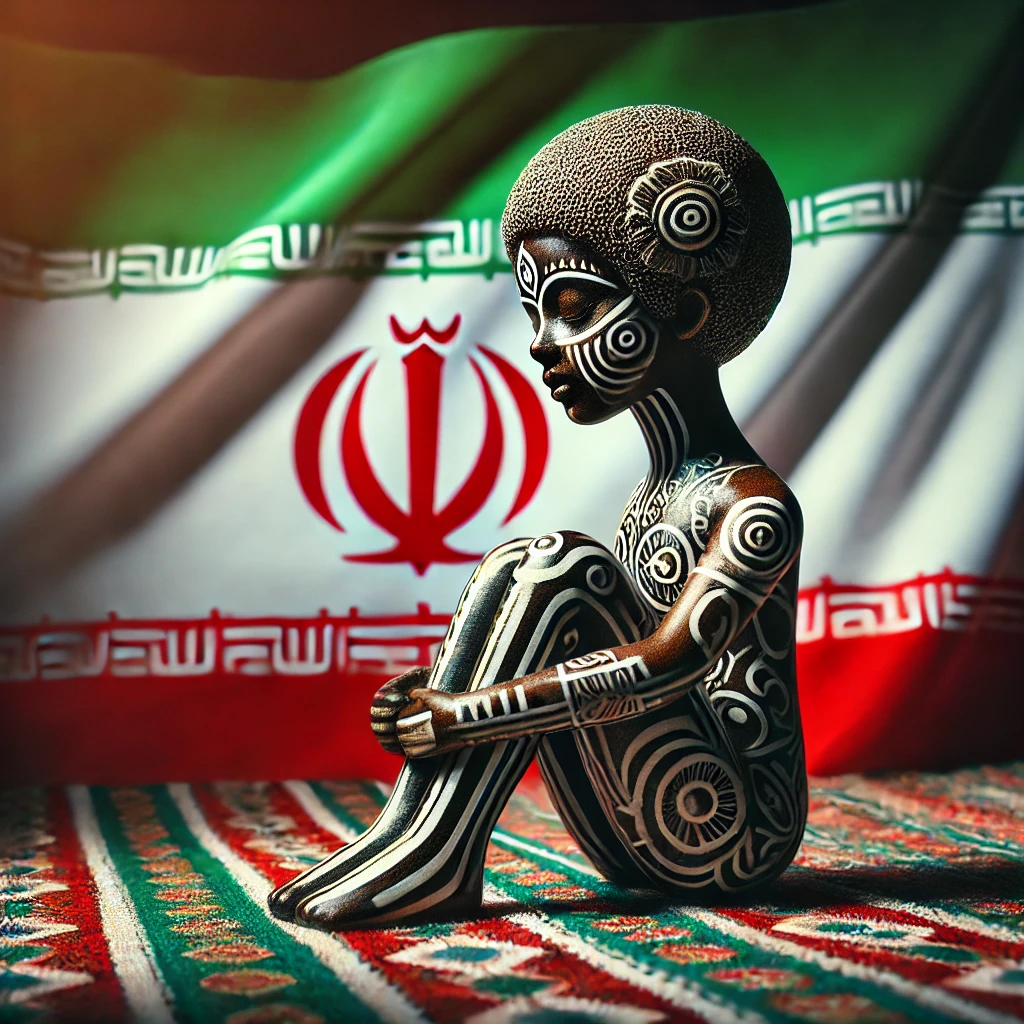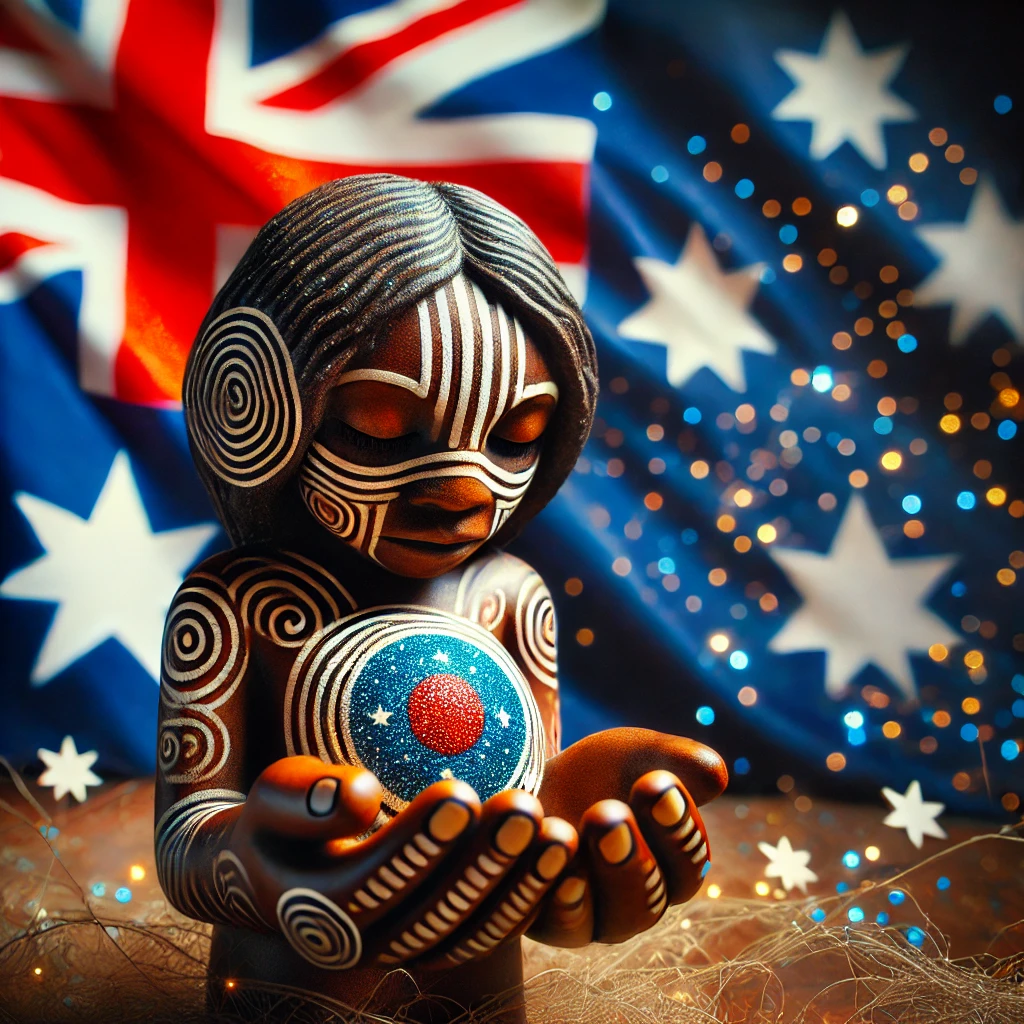Winti Doll Bakru: A Symbol of Respect for Flag and Country
In the rich tapestry of Surinamese spirituality, the Winti tradition stands as a beacon of cultural heritage and reverence. Central to this practice is the Bakru, a powerful spiritual figure that represents the fusion of Afro-Indigenous beliefs and traditions. One of the unique aspects of the Winti tradition is how it reflects respect for both the flag and the country of Suriname. The Bakru Winti Doll, a sacred object used in spiritual rituals, carries deep symbolism that connects practitioners to their cultural roots and national identity. In this article, we will explore the ways in which the Winti Doll Bakru shows respect for the flag and country, shedding light on its cultural and spiritual significance.












The Winti Tradition: An Introduction to Afro-Indigenous Spirituality
Winti is an Afro-Indigenous religion that emerged in Suriname as a result of the cultural and spiritual synthesis between enslaved Africans and the Indigenous peoples of the region. As Suriname is a melting pot of various ethnic groups, the Winti tradition integrates elements from African spiritual systems, such as Yoruba, Ewe, and Akan, along with the beliefs and practices of the Indigenous peoples of the area. The result is a unique spiritual framework that places great importance on respect, harmony, and the connection between the material and spiritual worlds.
Winti practitioners believe in the presence of spirits or “Winti” that influence every aspect of life. These spirits are venerated and called upon for guidance, protection, and healing. Central to this practice are spiritual objects, including the Bakru Winti Doll, which serves as a vessel for these spirits. The Bakru is not just a mere figurine; it embodies the spirit and energy of the Winti tradition, acting as a conduit between the human and spiritual realms.
The Significance of the Bakru Winti Doll
The Bakru Winti Doll holds immense spiritual significance in Surinamese culture. The doll is intricately crafted using a combination of materials, such as wood, clay, fabric, and beads. These elements are carefully chosen for their spiritual properties, and each doll is created with specific intentions to invoke particular spirits or Winti. The Bakru doll is often placed in homes or temples, where it serves as a focal point for spiritual rituals, prayers, and offerings.
While the Bakru doll is primarily a symbol of spiritual connection, it also holds a deeper cultural meaning. It serves as a reminder of the resilience and strength of the Surinamese people, particularly the Afro-Indigenous communities that have endured centuries of colonization, slavery, and oppression. The Bakru represents the enduring spirit of the ancestors, who fought to preserve their traditions and identity in the face of adversity. In this way, the Bakru is not just a spiritual object but a cultural artifact that speaks to the broader history of Suriname.
Respect for the Flag and Country: A Spiritual Connection to National Identity
One of the key ways in which the Bakru Winti Doll shows respect for the flag and country is through its deep connection to Surinamese identity and national pride. Suriname gained independence from the Netherlands in 1975, and since then, the Surinamese people have worked to preserve their cultural heritage while building a modern nation. The flag of Suriname, which features a prominent five-pointed star, represents the unity of the country’s diverse ethnic groups. The colors of the flag—green, white, red, and yellow—symbolize the land, peace, the people, and the country’s natural wealth, respectively.
For many Surinamese people, the Bakru Winti Doll embodies these same values of unity, peace, and strength. The spiritual practices associated with the Bakru honor the country’s history, its natural beauty, and its diverse cultural makeup. The doll serves as a reminder of the sacrifices made by ancestors to secure a better future for Suriname, and it symbolizes the ongoing spiritual connection to the land and the nation.
The respect for the flag is reflected in the way that the Bakru Winti Doll is often treated in spiritual rituals. Just as the flag is a symbol of national unity and pride, the Bakru doll serves as a representation of the spiritual unity of the people. By honoring the Bakru, practitioners are also honoring the country and its national symbols. This act of reverence is not just about respecting the past but also about affirming the collective identity and strength of Suriname’s future.
Symbolism of the Bakru and Suriname’s History
The Bakru Winti Doll’s connection to Suriname’s flag and country is deeply intertwined with the history of the nation. Suriname’s past is marked by the legacy of slavery, colonialism, and the struggle for independence. The people of Suriname, particularly those of African descent, have always maintained a strong connection to their roots, despite the challenges they faced in preserving their culture. The Bakru Winti Doll, as a spiritual artifact, reflects the resilience and strength of these communities.
The flag of Suriname, which was adopted upon the country’s independence in 1975, plays a significant role in the spiritual practices surrounding the Bakru doll. The five-pointed star in the flag represents the unity of the diverse ethnic groups that make up the nation, including the Afro-Surinamese, Indigenous, and East Indian populations. The Bakru Winti Doll, in a symbolic sense, mirrors this unity. It represents the convergence of different spiritual practices, rituals, and traditions that have shaped Suriname’s cultural landscape.
The colors of the flag also have spiritual resonance with the Bakru doll. Green, representing the land, mirrors the spiritual connection that the Bakru has to the earth and nature. Red symbolizes the people, reflecting the spiritual energy of the Surinamese people that flows through the Bakru. Yellow, representing wealth, echoes the spiritual wealth that comes from understanding one’s cultural heritage. White, symbolizing peace, aligns with the peaceful coexistence that the Winti tradition promotes through its spiritual practices.
The Role of the Bakru Winti Doll in National Celebrations
In Suriname, the Bakru Winti Doll plays a significant role in various national celebrations, particularly those that commemorate the country’s history and independence. During such celebrations, the doll is often placed at the center of rituals that honor the ancestors and the country. This act of honoring the Bakru is a way for the people of Suriname to connect spiritually with their history, their culture, and their nation.
For instance, during the Independence Day celebrations on November 25th, Surinamese people come together to reflect on the struggles of their ancestors and to celebrate the country’s hard-won freedom. It is during these moments that the Bakru Winti Doll is often placed on altars, surrounded by offerings, prayers, and songs. The doll becomes a focal point of reverence, symbolizing the respect for both the spiritual and national identity of Suriname.
Bakru Winti Doll and the Future of Surinamese Spirituality
As Suriname continues to evolve in the modern world, the Bakru Winti Doll remains a powerful symbol of the country’s spiritual and cultural heritage. Despite the influences of globalization and modernization, the Bakru continues to serve as a reminder of the importance of respecting one’s cultural roots and national identity. For younger generations, the Bakru Winti Doll is a bridge between the past and the future, offering a sense of connection to their ancestors and a way to preserve the traditions that have shaped their nation.
The continued use and reverence for the Bakru Winti Doll also highlight the resilience of the Surinamese people. In a world where cultural traditions are often at risk of being forgotten or overshadowed, the Bakru stands as a testament to the strength and vitality of Suriname’s spiritual and cultural practices. By honoring the Bakru, Surinamese people affirm their respect for their country, their flag, and their shared history.
Conclusion: The Bakru Winti Doll as a Living Symbol of Respect
The Bakru Winti Doll is far more than just a spiritual object; it is a living symbol of respect for the flag and country of Suriname. Through its connection to the Winti tradition, the Bakru embodies the values of unity, peace, strength, and cultural resilience. By honoring the Bakru, Surinamese people not only pay homage to their ancestors but also affirm their ongoing commitment to their national identity and pride.
As Suriname continues to navigate the complexities of the modern world, the Bakru Winti Doll remains a beacon of cultural preservation and spiritual connection. It serves as a reminder that respect for the flag and the country is not just about honoring the past but also about shaping the future. The Bakru Winti Doll, in all its spiritual and cultural significance, stands as a testament to the enduring spirit of Suriname and its people.
One response to “Winti Doll Bakru: A Symbol of Respect for Flag and Country”
[…] to the amalgamation of various West African spiritual practices, which were carried to Suriname by enslaved Africans. Over the centuries, the Bakru Winti doll has become an essential component in the practices […]
Leave a Reply